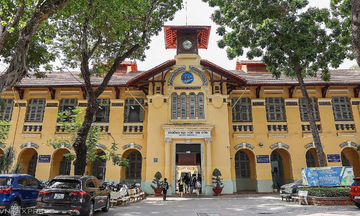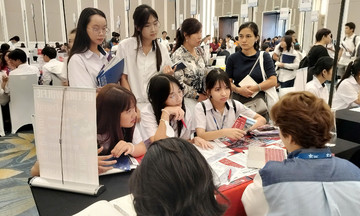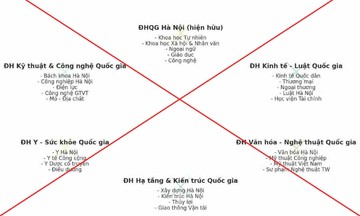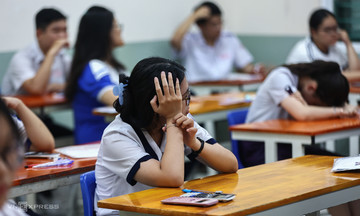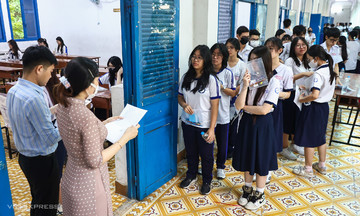The Ministry of Education and Training recently issued Circular 19 on student commendation and discipline, effective 10/31. Accordingly, the highest form of discipline for students is writing a self-criticism essay, replacing suspension.
This regulation has caused concern among many people who worry it will be difficult to deter students. However, many educators support the change, saying there are many appropriate ways to discipline students.
According to Associate Professor Doctor Pham Manh Ha, an educational psychologist and lecturer at the Faculty of Educational Science and Technology, Hanoi University of Science and Technology, the perception that writing a self-criticism essay is "too light" stems from a misunderstanding of discipline and punishment.
He explained that punishment uses power to inflict fear and pain to control behavior. In education, forms of punishment can include corporal punishment and expulsion.
"These methods may cause temporary compliance, but they don't help students recognize their mistakes or develop positive behavior. On the contrary, they increase feelings of hostility and discontent and risk involving students in illegal activities," Dr. Ha said.
Discipline, on the other hand, is a long-term educational process focused on helping students understand consequences and adjust their behavior. The goal of discipline is for students to willingly change and develop, not out of fear.
Dr. Ha believes the Ministry's new circular aims for positive discipline, obligating schools to take responsibility for students and find more refined and effective educational methods instead of using deterrents.
"Instead of demanding a return to old methods, we should focus on how to put the humane spirit of the new circular into practice," Dr. Ha said.
Associate Professor Doctor Tran Thanh Nam, Vice Principal of the University of Education, Vietnam National University, Hanoi, agrees, suggesting that schools can use self-criticism essays effectively.
"If treated as a mere formality, a response to a committed mistake, then the self-criticism essay has no deterrent effect and does not educate students. But schools can certainly do things differently," Dr. Nam said.
He suggested the self-criticism essay be a report on the student's change in awareness, including commitments to remedial actions, and even requests for teacher support to cultivate skills to prevent recurrence. Parents' signatures should also include a commitment to support their children in overcoming the issue.
"Done this way, the self-criticism essay is even more valuable than suspension," Dr. Nam observed.
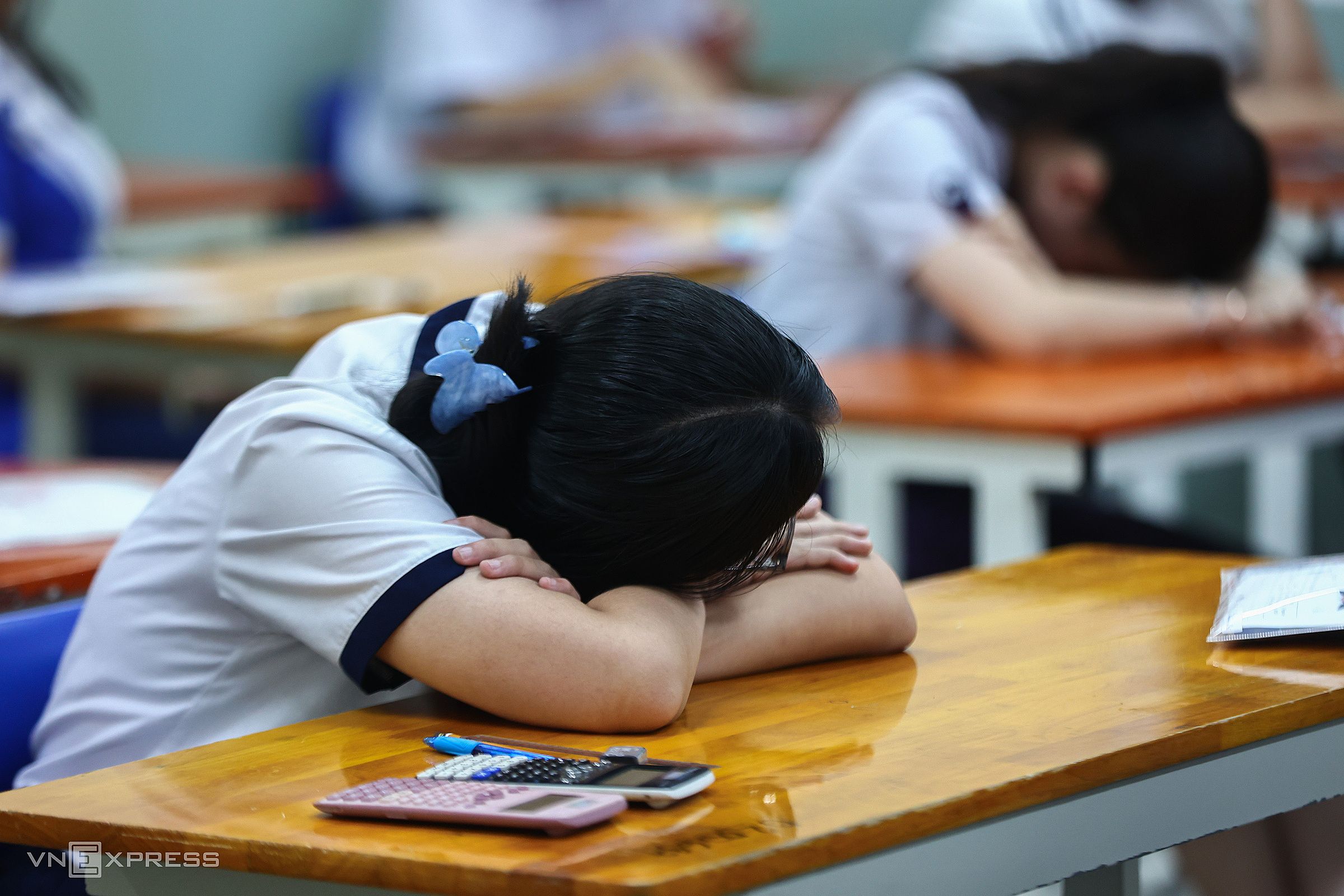 |
High school graduation exam candidates in TP HCM, 2025. Photo: Quynh Tran |
High school graduation exam candidates in TP HCM, 2025. Photo: Quynh Tran
Another measure schools can use is to isolate students who commit serious offenses for a short period, allowing them to participate in other educational activities, according to Dr. Nam. He explained this doesn't mean suspension; students still attend school, but instead of studying in class, they study and receive counseling in a separate space to avoid affecting their peers.
M.V. Lomonosov Secondary & High School, Hanoi, has implemented this approach. Principal Nguyen Quang Tung recounted a case where a student violated disciplinary rules, and the school felt it was unsafe for the student to return to class. Therefore, the school arranged for a teacher to tutor the student individually for three months.
"This isolation doesn't contradict the Ministry's regulations because the school still organizes learning activities for students in various ways," Mr. Tung said. In addition, Lomonosov School also requires students who violate disciplinary rules to organize and read books in the library.
Regarding parents, according to Mr. Tung, in some cases, worried parents proactively request their children take a few days off school to calm down. This period also reduces tension in relationships, allowing students to reflect on and recognize their mistakes to correct them.
"Three days is enough for the family and school to find the best educational solution for the student," Mr. Tung stated.
Beyond these situational solutions, experts believe prevention is better than cure, meaning there needs to be a long-term plan for educating students' awareness.
Associate Professor Pham Manh Ha suggests three actions for schools. The first is to build a culture of understanding and listening. According to him, safety isn't just the absence of violence but also the feeling of being understood. Schools need to create spaces where students feel comfortable sharing without fear of judgment.
The second is comprehensive social-emotional skills training. Dr. Ha sees this as the core foundation, as students need to be equipped with skills to identify, manage emotions, resolve conflicts, and communicate positively. Concurrently, teachers must be trained to recognize early signs of psychological instability and have appropriate intervention and support methods, avoiding reliance solely on administrative discipline.
Finally, schools need to establish a multi-faceted support system. Dr. Ha recognizes that a safe environment requires a solid network, including not only teachers but also psychologists and parents.
"When all parties are equipped with knowledge and act together, students will receive the most comprehensive protection and support," he said.
The Ministry of Education and Training also recently issued a Circular guiding school counseling work. The Ministry requires schools to use counseling to detect and respond to student difficulties early on, advising students on awareness skills, emotional self-management, and self-protection.
Associate Professor Tran Thanh Nam sees this as a favorable legal framework for schools to develop counseling activities for students. Schools may face initial difficulties when they lack specialized staff and teachers lack skills, but in the long run, Dr. Nam believes "teachers will become psychologists."
Looking further ahead, Dr. Nam hopes for improvements in facilities and class sizes in public schools. This will help teachers monitor each student, detect early signs of abnormality, and provide students with enough space to play, relieve stress, and maintain a "safe distance" when anger arises.
Thanh Hang - Duong Tam






